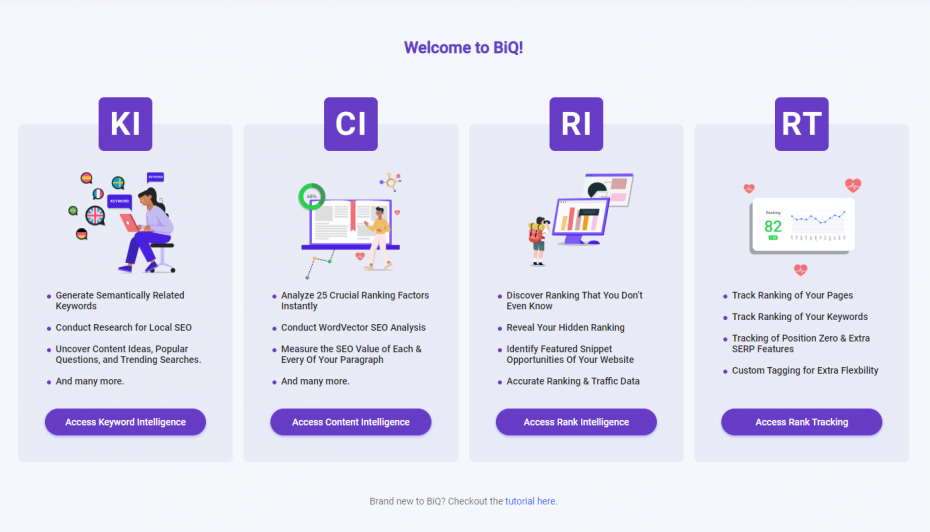Every SEO amateurs should start with understanding what high-volume and low-volume keywords are when they do keyword research.
Whether your goal is to target niche audiences or produce an excellent pay-per-click marketing campaign via search engine optimization, understanding keywords is crucial to the process. Some time ago, keyword research and planning was a simple art: find potential keywords, stuff your copy with mentions, reap the gains. But not today.
Due to search engines’ current rigid set of criteria as well as the high level of competition, benefiting from keyword research and planning is anything but assured. In any case, there are numerous variables and differences you ought to consider before going with any specific keyword.
One of these variables is high-volume keywords and low-volume keywords.
What are Low and High Volume Keywords?
As you may know, the term ‘keyword search volume’ refers to the number (or volume) of searches for a specific keyword in a set period. Yes, keyword search volume gets contextualized over a specific time frame to offer marketers a general idea of a specific search term’s overall volume and competitiveness. This is the data that marketers and SEO experts use to predict how certain keywords will drive traffic (over time).

With that said, high-volume keywords are all the search terms that feature a large search volume. As in, these are the terms many people query on search engines like Google, Bing, and Yahoo. Take the term ‘computer repair’ for example.
According to Google Ads, each month there are over 823,000 worldwide Google searches for ‘computer repair.’ Those numbers make this term a high-volume keyword. So, how about low-volume keywords?
As you would imagine, low-volume keywords are those keywords with a small search volume. For example ‘hot pink headbands.’ This term gets only 210 Google queries each month.
Now, both high-volume keywords and low-volume keywords have their advantages and disadvantages. Here they’re:
Advantages of High-volume Keywords
- More people will likely see your ad.
- More people will likely click your ad.
- More people will likely buy your service or product
Disadvantages of high-volume keywords
- Your costs per click are likely to rise
- The more clicks you get the higher the ad costs
- Your clicks will be less qualified
Advantages of low-volume Keywords
- Costs per clicks are lower
- Fewer clicks translate to fewer ad costs
- Your clicks get more qualified
Disadvantages of low-volume Keywords
- It’s likely fewer people will see your ads
- Fewer people seeing your ad means fewer people click your ad
- Fewer people buy your service or product
Why is Keyword Search Volume Crucial?
Did you know that search engines are today one of the main ways a site attracts traffic or visitors? Take the website WordStream for example. Organic search drives over 70% of this site’s traffic.

This goes to show the importance of incorporating target keywords with real search volume in your content. Be assured, if people aren’t searching for content using your targeted keywords, no one will find what you put up on the net.
Not only that.
Search volume is also crucial when it comes to PPC bidding strategy. This is because high-volume terms, in particular, tend to be more expensive and more competitive especially when they’re also commercial in intent. Yes…
Intent is Critical

Often overlooked, search intent is a key factor in Keyword SEO and selection. Search intent is basically the main reason behind a specific search. Or rather the ‘why’ behind a user’s search.
For instance, take a search term like ‘windshield repair now.’ The user here is probably desperate and hopes to get his or her immediate problem solved ASAP. So he or she instantly lands at the bottom of the keyword funnel.
Meaning nearly anything can make them convert. Even lazy ads leading to mediocre landing pages. On the other hand, look at a search term like ‘best CRM.’
Someone querying such a term isn’t ready to purchase the service immediately. Instead, he or she hopes to first examine the different reviews and options. And how can you confirm that this is the intent of the user?
Check out the most popular organic content results you get with the search term ‘best CRM.’ They are all reviews and not ‘the best’ firms touting their prowess. Meaning that spending ad resources on the term ‘best CRM’ doesn’t drive positive ROI and especially in the short term.
So as that example illustrates, intent can break or make your strategy as well as budget.
When Can You Ignore Keyword Search Volume?
In as much as search volume is a crucial part of deciding which keywords to use for Google Ads, it’s not the only thing you ought to look at. Other facets of your campaign come into play when looking for the best target keywords. They include:
- Buying Intent
Do your target keywords have strong buying intent? You see, some keywords may have low search volume, but they quickly convert users into buyers. Why? You guessed it. Strong buying intent!
Buying intent is, thus, another factor to consider when seeking out the best keywords.
- “Under the Radar” Keywords
Suppose that you’ve spent adequate time honing in on your audience through content. This puts you in a position to pick up on the needs and insights your audience has, and so you can come up with extremely targeted keywords. They may not be high-volume, but they’ll work. And you’ll have the experience to back up your intuition.
- Keyword Conversion Rates
Take note that your landing page will massively impact your advertisement campaign performance. From the copy to the images, videos, color contrast, these are all elements that will encourage users to convert. Nonetheless, you’ll first have to get the users to your landing page.
And depending on the keywords you utilize, anyone who sees your content will either go down the funnel or choose a competitor. You must, therefore, watch out for keyword conversion rate.
To calculate the keyword conversion rate, use the formula:
Conversion rate= (conversions/total visitors)* 100%
- Keyword Relevance
This is the qualitative measure that allows marketers to tell how important a specific keyword is to their marketing bottom line. So a keyword may be high-volume with its relevance low. It, thus, doesn’t guarantee high conversion rates.
- Keyword Reach
Keyword reach refers to the specific audience a given keyword is likely to help your ad attract. If anything, keyword reach and keyword search volume are intrinsically tied. Though not applicable always, the more popular a keyword is, the higher its reach potential.
The aforementioned factors all represent instances where you can ignore keyword search volume.
Choosing Between High-volume Keywords and Low-volume Keywords

High-volume keywords expose your content or campaign to a larger audience, which tends to lead to more subscriptions, purchases, or clicks.
With that said, if you’re a brand or company seeking increased visibility or short-term gains within one or more niches, high-volume keywords will work best as they produce immediate effects.
How about low-volume keywords? Low-volume keywords allow brands to target unpopular search niches. That brings one question to mind.
Why would you ever want to target a smaller audience instead of a big one? One of the biggest reasons is cost. Lower volume keywords tend to lower associated costs compared to high volume keywords.
For example, 10 clicks for high-volume keywords may go for $12, with their low-volume alternatives going for half that amount. What’s more, research shows that the clicks generated by low-volume keyword campaigns are usually more qualified and relevant.
Low-volume keywords also offer superior results when targeting niche audiences. All the same, here are some important pointers to consider when deciding whether to go with high-volume keywords or low-volume keywords:
- The Keyword’s actual Cost per Click
The truth is that most high-volume keywords have higher costs per click (CPC). So if you see a high-volume keyword with a low CPC, don’t hesitate to jump on the opportunity. Also, keep in mind that not all low-volume keywords offer lower CPCs.
- The Target Market
If the kind of product/ service you’re selling has a narrow market, you don’t really need a high-volume keyword. Yes, low-volume keywords work more accurately when targeting people who are looking for a specific product. But if you’re selling a product/service anyone could use, high-volume keywords work much better.
- The Cost of your Product/ Service
Your product/ service pricing should dictate whether you go with the expensive high-volume keyword or inexpensive low-volume keywords. Why? All the revenue you earn will get offset by the click costs. So unless you’re selling something pricey, don’t go for high-volume keywords all the time.
- Your Ads’ Purpose
Go for high-volume keywords if you’re looking to expose your brand as they make you visible to a larger audience. But if your main goal is getting immediate profit, low-volume keywords might work better.
- Long-tail keyword vs Short-tail keywords
Most people assume that short-tail keywords provide higher search volumes than long-tail. But that isn’t usually the case. A study of 1.9 billion keywords discovered that of all keywords with 10,001+ monthly searches, 29.13% consisted of 3 or more words.
Not only that. Of all keywords with 10 (or less) searches per month, only 13.35% consisted of one or two words. This just goes to show that a search query’s number of words doesn’t determine keyword search volume.
And because ideas on high-volume long tail-keywords can be sometimes hard to come by, here are the best methods of seeking them out:
- Use Google autocomplete suggestions
- Talk to your customers
- Look at online community threads
- Employ Keywords Explorer
Use BiQ Keyword Intelligence To Help You Choose The Correct Keywords

BiQ’s keyword intelligence tool has a handy panel that breaks down the keyword intent for you. Combine that with the data you can get from the keyword overview panel, you can make insightful decisions when you’re choosing to bid for certain keywords. Taking into account not only the volume but also the search intent.

You can also toggle the search intent by clicking on it, so it’s easier to get all the keywords needed matching a transactional intent.
Bottom Line?
Keyword selection is nothing but a balancing act. Broad keywords featuring over 100,000 monthly searches can earn you many clicks, but they’ll also attract lots of untargeted traffic. On the other hand, low-volume keywords may drive only about 20 clicks a month, but these are people who are extremely interested in your service/ product.
Remember, with search terms, bigger isn’t always better. In fact, it’s better to go for long and more specific keywords (those directly relevant to your offering with lower search volumes), rather than common generic industry terms or seed keywords like ‘marketing.’
Ignore the vanity metrics (visits, volume, clicks, and impressions) that come with long-tail keywords. In any case, 200 clicks and 20 conversions are much better than 1000 clicks and 1 conversion. So try as much as possible to balance both high-volume keywords and low-volume keywords.




